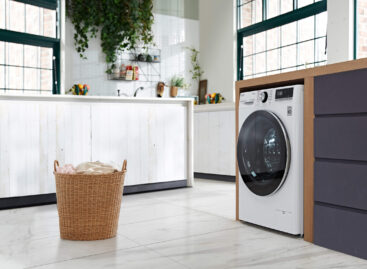Can our pets really get sick from the climate?
As the summers get hotter every year, more and more people decide to install a modern air conditioner. These devices make it easier and more comfortable for us to get through the hot days, but if we have a pet, the question may arise: can our little pet get sick if we use air conditioning at home? LG Hungary’s experts have now collected the most important information on the subject.
The human body adapts well to temperature changes: when we are hot, we sweat, and when we are cold, our blood vessels constrict and give off less heat, and our body tries to produce extra heat by shivering. However, the body temperature regulation of our four-legged pets at home is different from ours, as they cannot sweat in the heat. In the case of dogs, panting is primarily used to release heat, and although the ancestors of cats are originally a desert species, which is why they tolerate the heat better, the high summer heat can be stressful for them as well. Our pets also regulate their water balance by breathing, emptying and evaporation through their paws, which they can compensate by eating and drinking. However, in the heat wave, all this may prove to be insufficient, and the extreme heat may even lead to more serious consequences, such as dehydration, or, in the last case, heatstroke. The danger of this is especially high when the ambient temperature exceeds the animal’s body temperature: this means 38-39 degrees Celsius for dogs and 38-38.5 degrees Celsius for cats. However, heat no longer escapes through the skin above approximately 31 °C, so we must pay attention to the signals of our pets in case of higher temperatures – in such cases, panting and panting become the only means of reducing body heat. It is also important to take into account that the efficiency of panting is greatly affected by increased humidity and if we keep our little pet in a closed, poorly ventilated place. In addition, any factor that hinders the functioning of the upper respiratory tract, such as illness or in some breeds – such as bulldogs, pugs or boxers – a short nose can also be a disadvantage.
Related news
How to have a waste-free Christmas
🎧 Hallgasd a cikket: Lejátszás Szünet Folytatás Leállítás Nyelv: Auto…
Read more >Minimalizing food waste by LG
🎧 Hallgasd a cikket: Lejátszás Szünet Folytatás Leállítás Nyelv: Auto…
Read more >Related news
Coca-Cola To Discontinue Frozen Products In US And Canada
🎧 Hallgasd a cikket: Lejátszás Szünet Folytatás Leállítás Nyelv: Auto…
Read more >









